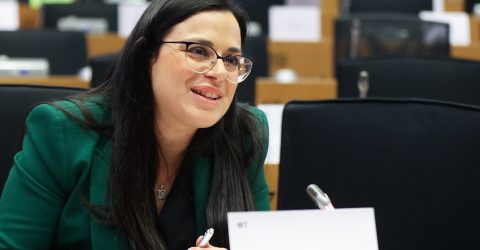As the United States moves into the transition period leading up to Biden’s taking over the Presidency in January of 2021, the challenges that concern America’s relations with the European Union will take centre-stage. So will the broader re-take of the United States’ role on the international front. In this renewed outlook on EU-US ties, there definitely is a lot of hard work to be carried out in the coming months and years — but there is also cause for cautious optimism.
We know that President-elect Joe Biden has hit the ground running and opened up the conversation with various European leaders, including Germany’s Angela Merkel, France’s Emanuel Macron and Irish Prime Minister Micheál Martin amongst others, almost within hours of the election outcome.
As the EU pursues its own goals in staying at the forefront of leadership and innovation globally, and building further on the success of its efforts in the digital sector and digital regulation, and various other areas, Europe’s part in determining global agendas for the coming years will be ever more crucial.
Europe’s role as a major international stakeholder in the matters of climate change, global security and the global economy, the COVID-19 pandemic, the strengthening of democratic structures at an international level, can never be underestimated.
These issues are now also coming into renewed focus with Biden’s incoming presidency. So is America’s role as an important player in ensuring the managing and protection of international public goods.
The Biden presidency faces a tall order as it sets out to refashion its international front and resume various aspects of its ties with a number of entities that carry global reach, and have global impacts on our lives. This effort must surely involve strengthening, and in some cases re-igniting, various multilateral conversations and commitments.
America’s stand vis-a-vis the Trans-Pacific Partnership, NATO, the Paris Climate Agreement, relations with the World Health Organisation (WHO) and the World Trade Organisation (WTO) will require embarking on renewed modes of engagement across these and other important initiatives and stakeholders at world level.
There is, moreover, much space for trans-Atlantic ties to grow stronger in new and productive ways.
We do know what the issues beckoning the Biden presidency, Europe, and EU-US relations are today.
The way in which the US will set the tone of action for its presidency going forward is going to be of paramount import. So is the question of how both the EU and the US are going to collaborate by way of revamping their ties, such that new means of addressing the urgencies confronting their people, the world community and the planet at large are identified and actioned.
There seems to be a clear, good will on both the EU side and the incoming US presidency towards achieving these goals. Various EU leaders, including European Commission president Ursula von der Leyen, have already sent out positive signals to this end.
Europe will now need to work closely with the United States to identify the best tools and come up with solutions that speak to our moment in an effective way.
No party can afford to pay mere lip service to the idea of enhancing democracy in Europe, in the US, and across the world. We need fresh takes and effective, creative ideas in order to address the issues heads on and adapt ourselves to how our lives are constantly changing as a result.
Global economic inequalities, racism and hate speech, harnessing cutting-edge technologies including the social media to more beneficial ends, achieving a stronger human rights record for all, and large-scale investment in health and educational facilities, ensuring the effectiveness of arms embargoes — these are going to entail joint action and the pooling of ideas and resources across both political blocs and the various other international partners and stakeholders.
If these issues are taken up with the necessary focus, commitment of resources, synergy and joint will to achieve them, one important outcome should be a more rapid recovery from the fallout of the pandemic.
Moreover, the election of Kamala Harris as Vice President-elect of the United States also means that competence and leadership by women at the highest levels is now a common characteristic of the EU and the US.
Yes, there is cause for optimism in Europe and the world with the forthcoming US presidency. This, however, can only materialise and bear fruit if there is the necessary will, effort, resources, the right ideas and the strong collaborative spirit required to bring about much-needed changes for the benefit of all.





